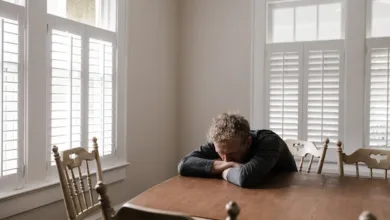6 Common Medical Emergencies and How to Cope with Them

Learning how to respond to medical emergencies is important to staying safe and healthy. Medical emergencies can be stressful and overwhelming, but if you have the right skills and knowledge, you stay calm in a crisis.
In the following post, you will learn about 7 common medical emergencies and how to respond to them. Let’s discuss it!
1. Burn
You should immediately cool the burn with cold running water for at least 10 minutes for minor burns.
Avoid using ice to cool a burn, as this can cause further damage. Cover the area with cling film or a clean cloth and seek medical advice.
For more serious burns, call emergency service or Canadian pharmacy immediately and provide first aid measures until help arrives. Do not attempt to remove clothing that has stuck to the skin due to burning, as this may cause further injury.
Cover the burn with a bandage or towel and elevate any burned body parts above the heart. Keep the person warm but don’t cover them in blankets.
2. Heart Attack
If a person has a heart attack and you are the first on the scene. Firstly, call help immediately – do not wait for anyone else to make the call.
Next, if available, try to start CPR (cardiopulmonary resuscitation). This will keep oxygenated blood pumped throughout their body until medical help arrives. But you must perform CPR correctly as this could be critical in saving their life.
3. Fractures
Fractures are of three types: open, compound, and closed. An open fracture is a cut in the bone that also breaks through the skin. Compound fractures occur when bones are visible under the skin. A closed fracture is a crack in a bone, but it does not break through the skin.
When responding to an emergency involving fractures, you need to assess the severity of the injury and give first aid as soon as possible. If there is bleeding, apply pressure with clean clothes to stop any bleeding. Besides, you shouldn’t move an injured person into an unnatural position without proper training.
4. Animal Bites
Animal bites can be serious and require immediate medical attention. If you or someone else gets a bite, you need to follow the steps below:
First, clean the bite with soap and water. Apply pressure to stop the bleeding. Do not bandage the wound until it stops bleeding. To prevent infection, it is important to keep any dirt or debris away from the wound.
Second, go immediately to your doctor for possible treatment of the injury. Depending on the bite’s depth and seriousness, you may need stitches, antibiotics, and a tetanus shot.
5. Seizures
If someone is having a seizure, you need to stay calm and take the following steps:
- Put something soft beneath the person’s head, such as a pillow or blanket, to protect against injuries.
- Clear away any hard objects in the area that could cause further harm during the seizure.
- Loosen tight clothing around the neck, such as ties or collars.
- Do not try to hold them down or restrict their movements unless they are in danger of harming themselves or others.
- Do not put anything in their mouth – this will not stop them from having a seizure but could cause injury to their teeth, throat, or jawbone.
6. Call Emergency Help
If you or someone around you is in a medical emergency, you need to take action quickly. You should call the emergency helpline or go to the nearest hospital l for timely medical attention and care. When calling the emergency helpline, be as clear as possible about your location and situation so that help can arrive swiftly.





